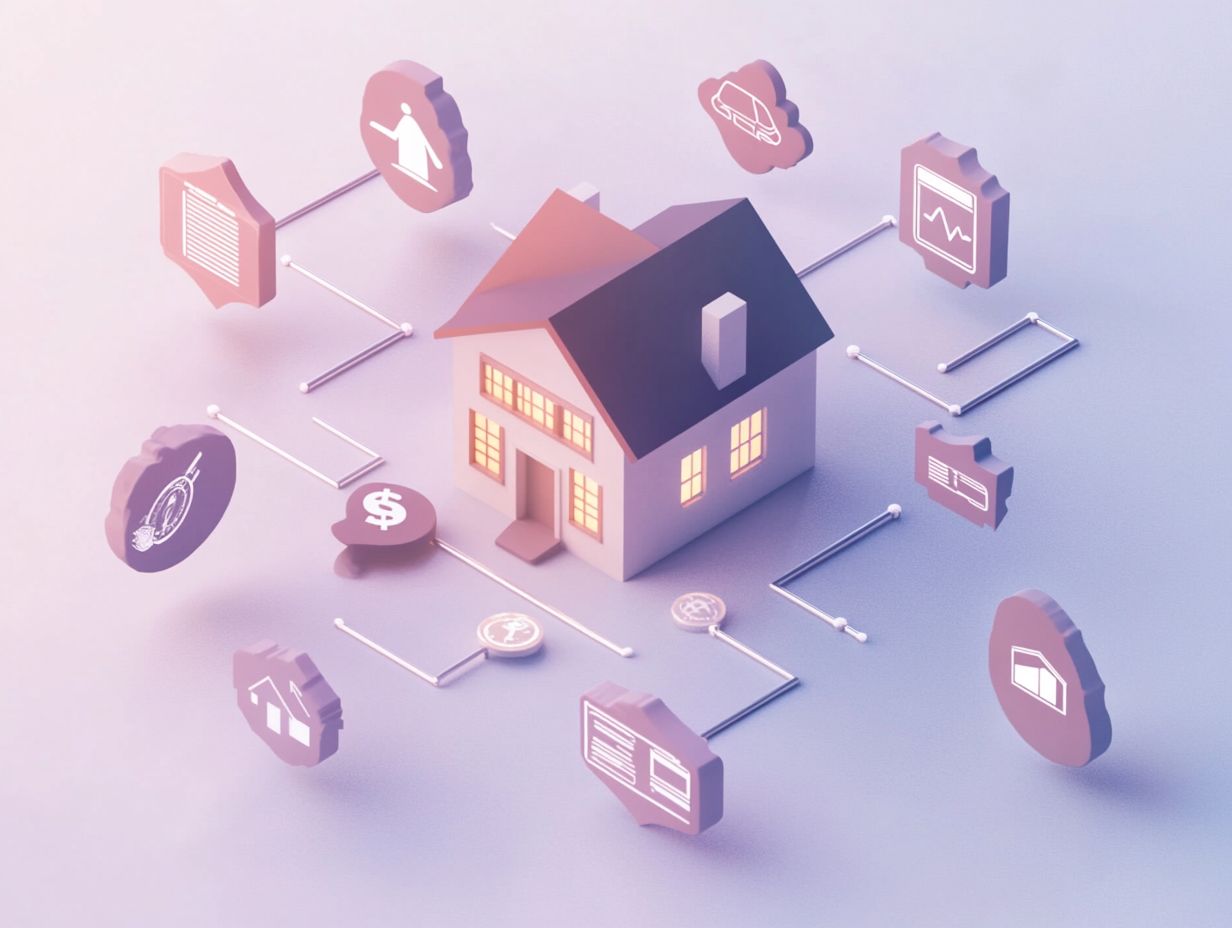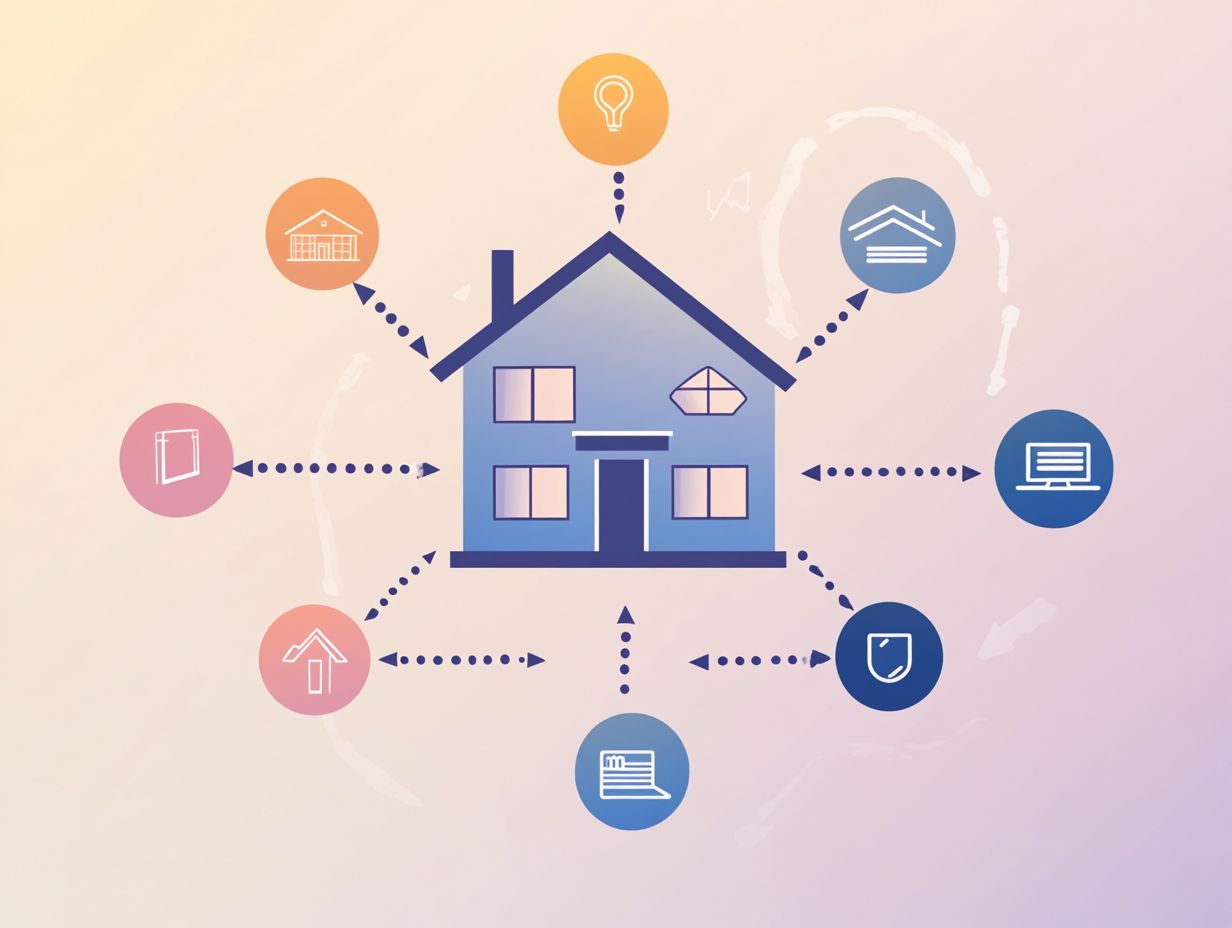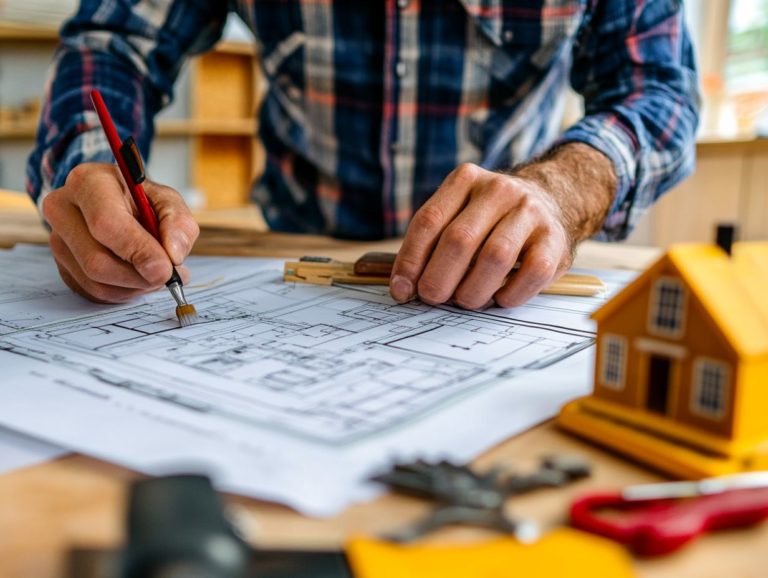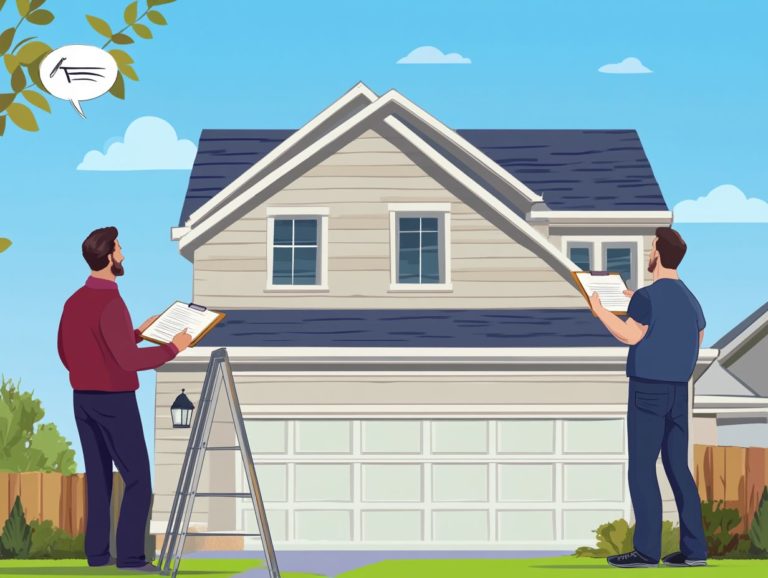What Are the Steps to Selling a Home?
Selling your home may seem daunting, but with the right strategy, you can glide through the process with ease.
This guide outlines the crucial steps you need to take, from evaluating the market and determining an appropriate price to making essential repairs that enhance your home s attractiveness.
Delve into effective marketing strategies, including how to create a captivating listing and utilize social media to your advantage.
Master the art of negotiation, navigate the closing process, and understand the legal considerations involved.
Prepare yourself to transform your home-selling journey into a remarkable success story!
Contents
Key Takeaways:

Price your home competitively after assessing the market to attract potential buyers.
Create a standout listing and utilize social media to market your home effectively.
Understand the legal aspects of selling a home, including contracts and disclosures. Consider hiring a professional for assistance.
Preparing to Sell Your Home
Preparing to sell your home requires a strategic approach that thoughtfully considers market conditions and your home equity.
You ll want to assess your property’s current value. Identify any upgrades or repairs that could elevate its appeal to potential buyers.
Understanding the selling process clearly will help streamline your timeline for a successful sale, from getting a good listing agreement to conducting a pre-sale inspection.
With the right preparation, your home can truly shine, whether it s a buyer’s market or a seller’s market.
Assessing the Market and Setting a Price
Assessing the market and determining the right price for your home is pivotal; it directly impacts buyer interest and how quickly your home sells.
In today s dynamic real estate landscape, grasping current market conditions and home prices is essential for you as a seller.
To gain valuable insights, consider using tools like a home appraisal. This can provide a professional valuation that reflects recent sales trends alongside your property’s unique characteristics.
It s crucial to craft a detailed listing agreement that clearly outlines the terms of the sale and any potential contingencies.
Equally important is your understanding of buyer financing options. A well-informed seller can navigate offers and counteroffers more effectively.
This will appeal to a diverse pool of potential buyers and ensure a smoother transaction overall.
Making Necessary Repairs and Improvements
Making necessary repairs and improvements is crucial for enhancing your home s value and appeal, ensuring it attracts serious offers from buyers.
By capitalizing on renovations like kitchen updates or bathroom remodels, you can dramatically boost your home’s appeal and attract serious buyers!
Professional staging can create an inviting atmosphere that resonates with potential buyers, making them envision their future in the space.
Conducting a thorough home inspection is vital; this uncovers underlying issues that could deter offers.
Transparent property disclosures can foster trust with prospective buyers and make negotiations smoother.
If you’re working with a tighter budget, don t underestimate the impact of simple DIY projects. Fresh landscaping or a new coat of paint can work wonders, showcasing a well-maintained home that buyers will be eager to explore.
Marketing Your Home
Effectively marketing your home is essential for attracting potential buyers. A well-crafted marketing strategy can profoundly impact both the sale price and the timeline for selling your property.
Start your home-selling journey today, and watch your dreams come to life!
Creating an Effective Listing

Creating an effective listing is essential for attracting home buyers. It serves as the first impression of your property and can make or break a sale.
A well-crafted listing description clearly shows your property’s unique features. This helps potential buyers envision their future within those walls.
Engaging marketing photos play a pivotal role. They should capture the interior charm and functionality while highlighting the inviting curb appeal of your home.
When showcasing the property online, utilize golden hour lighting for your photographs. This creates a warm and welcoming atmosphere that draws buyers in.
Incorporating home selling tips can enhance visual appeal. Decluttering and staging can ensure your listing stands out in a crowded market.
Utilizing Social Media and Other Platforms
Utilizing social media and various platforms is a powerful method for elevating your property’s online appeal. This allows you to reach a broader audience of potential buyers.
By strategically implementing targeted ads and crafting compelling virtual tours, you can effectively showcase the unique features of your listing. Engage with potential buyers to spark interest and excitement!
Gathering and analyzing buyer feedback offers valuable insights. This allows you to fine-tune your marketing strategies for enhanced engagement.
When you adapt your messaging and visuals based on feedback, you resonate more deeply with your target audience, boosting the potential for successful transactions.
Negotiating and Closing the Sale
Negotiating and closing the sale are pivotal stages in the selling process. Your ability to communicate effectively can significantly influence the final sale price and transaction terms.
Handling Offers and Counteroffers
Handling offers and counteroffers with finesse can influence your home’s selling price and everyone’s satisfaction in the transaction. Grasping the nuances of receiving and responding to offers is essential.
The significance of counteroffers presents a valuable opportunity to negotiate terms that align with your objectives. By establishing clear goals and maintaining flexibility, you can find common ground while holding firm to your desired price.
Real estate agents play a crucial role in this process. They facilitate communication and provide insight into market trends and pricing strategies. Their expertise helps reduce misunderstandings, paving the way for a smoother transaction.
Navigating the closing process involves several critical steps. These steps are essential for addressing all legal and financial aspects of the sale before the big day arrives.
Your first task is to prepare the necessary closing documents, which typically include the sales contract, loan agreements, and title documents.
Understanding closing costs is equally important. Closing costs are fees related to the sale, such as appraisal fees, title insurance, and transfer taxes.
A knowledgeable real estate attorney will guide you through the paperwork. They ensure compliance with local laws.
During the closing appointment, review these documents in detail. Ask any lingering questions and finalize the transaction an important step toward homeownership or successfully selling your property.
Legal Considerations

Grasping the legal considerations tied to selling a home is crucial. This safeguards your interests and ensures adherence to local real estate laws and regulations.
By familiarizing yourself with these legal aspects, you can navigate the process with confidence and peace of mind.
Consult a legal expert to ensure a smooth selling process.
Understanding Contracts and Disclosures
Understanding contracts and disclosures is essential for any homeowner contemplating a sale. These legal documents delineate the terms of the transaction and reveal important facts about the property.
Navigating the intricate landscape of real estate transactions demands a solid grasp of the various contracts involved in the selling process. A listing agreement is a contract between you and a real estate agent that outlines how you will work together to sell your home.
Listing agreements cover everything from fees to marketing plans. You ll also need to complete property disclosures, which capture vital information about the condition and history of your home.
Accurate home inspection reports and property disclosures build trust with buyers and can boost your sale price! These elements directly influence buyer confidence and can significantly affect your final sale price, paving the way for a seamless transaction.
Hiring a Real Estate Agent or Attorney
Hiring a qualified real estate agent or attorney can significantly elevate your selling experience. They bring valuable expertise in negotiating offers and navigating the complexities of real estate commissions.
A skilled real estate agent knows local trends inside and out. They can accurately price your property, ensuring it catches the eye of serious buyers swiftly.
They also help buyers secure financing, which can be crucial for closing the sale. With an extensive network of contacts, they can present your property to a wider audience, potentially attracting multiple offers.
While an attorney provides essential legal protection and contract oversight, they may not possess the specialized marketing acumen and negotiation prowess that an agent brings to the table. Thus, choosing between these professionals is a critical decision in your selling journey.
Frequently Asked Questions
What Are the Steps to Selling a Home?
The steps to selling a home may vary depending on your location and specific circumstances, but generally, they include:
- Determining your home’s value
- Preparing your home for sale
- Listing your home with a real estate agent or selling by owner
- Marketing your home to potential buyers
- Negotiating and accepting an offer
- Completing the necessary paperwork and inspections
- Closing the sale
Is it necessary to use a real estate agent when selling a home?

No, it is not necessary to use a real estate agent when selling a home. However, an experienced agent can offer valuable guidance and assistance throughout the selling process, especially in pricing, marketing, and negotiating.
How do I determine the value of my home?
There are a few ways to determine the value of your home, including:
- Researching recent home sales in your area
- Hiring a professional appraiser
- Using online home valuation tools
Consulting with a real estate agent for an accurate and comprehensive assessment of your home’s value is recommended.
What can I do to prepare my home for sale?
To prepare your home for sale, you should consider:
- Decluttering and depersonalizing your space
- Completing any necessary repairs or updates
- Cleaning and staging your home
- Taking high-quality photos for marketing purposes
A real estate agent can also provide valuable tips on how to make your home more appealing to potential buyers.
How long does it typically take to sell a home?
The length of time it takes to sell a home can vary greatly depending on market conditions, location, and other factors. On average, it takes about 30-60 days from listing to closing, but it can take longer in a slower market or if there are issues with the home or the sales process.
What are my options if my home is not selling?
If your home is not selling, you may want to consider:
- Reevaluating the price and adjusting it accordingly
- Improving the overall condition and appearance of your home
- Working with a different real estate agent or considering selling by owner
Be patient and understand that selling a home can take time; it is not always a quick process. Act now to ensure you capture the interest of serious buyers!






